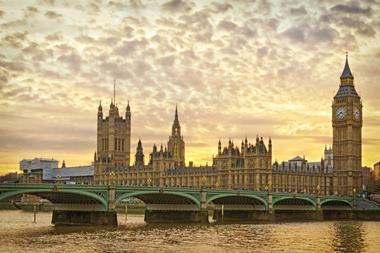Britain’s larger pension funds are keeping a watchful eye for developments in the wake of the public vote for the country to leave the EU, with individual funds registering various gains and losses in the immediate market changes following the referendum.
The common fund of Santander’s UK pension scheme gained more than $1bn (€900m) in June alone to reach an all-time asset high of £10.4bn (€12.3bn) and is now up 12.5% so far in 2016.
Santander’s director of pensions Antony Barker told IPE: “This is largely attributable to few assets or asset classes experiencing any losses, and benefiting from having increased hedge ratios to around 70% in recent weeks.”
He explained that the fund’s equity mandates were active, global and unconstrained, that private markets were largely unaffected in the short term and that the fund was only 50-60% currency hedged.
“Our real estate has few voids, has a WAULT (weighted average unexpired lease term) of around seven years and is skewed away from prime offices,” he said.
Barker pointed towards some of the unknown elements that lay on the horizon.
“Looking ahead, the major factor is uncertainty across various discrete but unknown time periods – before triggering Article 50, from trigger to exit and post exit, as well as a possible second referendum, or more likely a general election, before the trigger,” he said.
“There is also the US election looming large.”
The CIO of the Environment Agency Pension Fund (EAPF), which had £2.9bn (€4bn) in assets at the end of June 2016, told IPE the Brexit vote was precisely the type of event the local government scheme felt its strategy was designed to withstand – and has.
The scheme considered the possibility of a Leave vote as part of its planning in the lead-up to the UK’s EU referendum but did not make any immediate changes as a result of that analysis.
According to CIO Mark Mansley, this was largely because it already had a very internationally diversified portfolio, and had ended its currency-hedging programme a few years ago.
“We do have a small UK equity allocation, but the vast majority of our equities are global, so we felt that affords us considerable protection in the event of Brexit,” he told IPE.
“We felt that the most immediate effect – as we have, indeed, seen – would be felt on the currency, which we expected might fall by 10%.”
Somewhat surprising, added Mansley, was the reaction in the government bond market, with Gilt yields falling further than the fund had expected after weighing different factors.
“That’s been the major negative for us,” he said.
Overall, however, the pension fund feels the strategy it has been pursuing is designed to weather storms such as that triggered by the vote to leave the EU.
“In a sense, we feel we’ve tested our investment strategy in probably one of the biggest shocks we could imagine,” said Mansley. “And, broadly speaking we feel it is robust.
“It’s about the classic investment principles of being very diversified and being risk aware, which for us generally means being quite risk averse.”
At a high level, the fund is therefore applying the motto of ‘keep calm and carry on’, although it is looking at the more UK-focused parts of its portfolio.
Brexit could have a big impact on the EAPF, however, by causing it to postpone a second round of de-risking that it had lined up for this year.
“We’ll have to see quite how far we will be able to proceed with that,” he said.
Meanwhile, the £49bn Universities Superannuation Scheme (USS) says the impact of the referendum vote may be significant for its sponsors and its long-term outlook as an investor.
“However, it is too early to make judgements,” a spokeswoman said.
She said the fund was a long-term investor, globally diversified and backed by a substantial covenant from the higher-education sector.
“We had taken some steps in anticipation of turbulence and expect considerable further uncertainty for a period,” she added.
“We will be closely monitoring developments with regard to the UK government’s negotiations with Europe, as the key issues of relevance to our sponsors and investment approach are determined.”
In the meantime, USS will continue working with policymakers and regulators in the markets it invests in to make sure asset-owners’ concerns are considered.
“Our actions to date have focused on ensuring short-term market turbulence does not materially impact the scheme’s efficient operation,” she said.
The Pension Protection Fund (PPF) said it would keep a close eye on events as they unfolded but that there was safety in its investment approach.
“The outcome of the referendum will clearly have significant consequences, and we will be following developments carefully,” a spokeswoman for the UK lifeboat scheme said.
“However, our long-standing low-risk approach and hedging strategy mean we are able to cope with the volatile markets we expect to see.”
At Santander, Barker said that, if history were any guide, the current uncertainty in the wake of the referendum would probably prompt other investors to sell at discounted prices, and that there were suggestions real estate might correct by 15% or more.
“We’ve no need to generate additional liquidity or make sales, so we will be more likely to be net investors,” he said.
Because the pension fund’s portfolio is largely driven by global stories and non-European considerations, Barker said he did not foresee any changes being made to the long-term strategy.
“The more interesting question is where do you believe the economic powerhouses of the next decade are?” he asked.
“My personal belief – and reflected in the pension fund strategy – is that it is Africa, India and China, and probably in that order, and this is where we have been committing most of our time and money,” Barker said.










